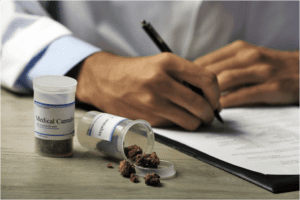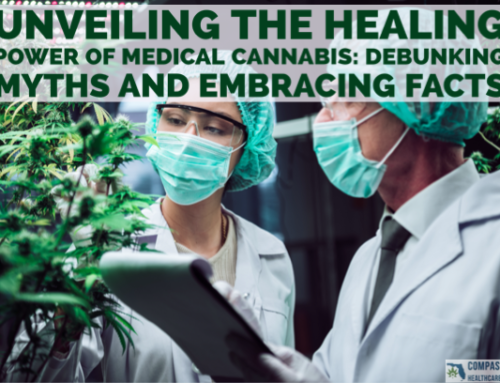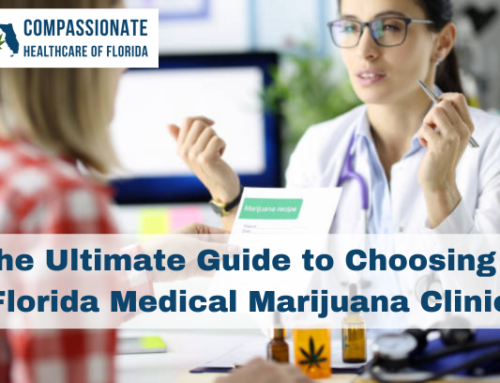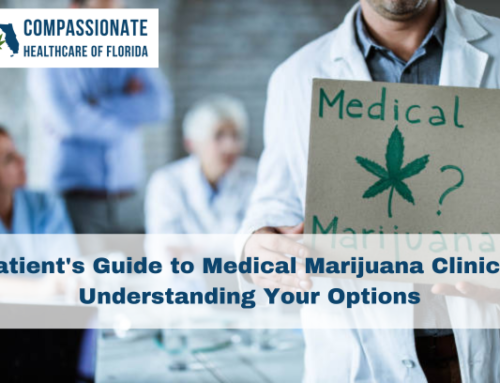
Post-traumatic stress disorder is a psychiatric condition linked to witnessing or surviving a traumatic life event. According to the recent statistics, this condition can affect around one in 100 people at some point in their lives. Post-traumatic stress disorder can cause flashbacks, agitation, insomnia, nightmares, and impaired concentration and memory. These symptoms can raise the risk of depression, substance abuse, dependence, and suicide.
Many patients with PTSD struggle to find satisfactory symptom relief from conventional treatments – including antipsychotic medications, anti-depressants, and psychological therapies such as counseling and cognitive behavioral therapy. Cannabis has shown versatile therapeutic effects as it helps stimulate the body’s endocannabinoid system. Studies have shown that CBD and THC – two main cannabinoids in Cannabis – are capable of treating people who have PTSD.
Symptoms Treated by Medical Marijuana
Most studies suggest that the therapeutic use of medical marijuana can provide adequate symptomatic relief and significantly improve the quality of life for those who have anxiety and PTSD. It is not a cure; however, cannabinoids activate the body’s endocannabinoid receptors and provide incredible relief for most debilitating symptoms associated with PTSD, including:
- Anxiety: Chronic anxiety is one of the most common afflictions associated with PTSD. Cannabis, due to its large amounts of CBD and THC, has been shown to fight anxious feelings and reduce stress. It also has mood-enhancing abilities.
- Insomnia: Due to the flashbacks and anxiety, many with the condition also experience insomnia, and find it challenging to fall asleep. Even those who fall asleep often wake up by the intense nightmares – another common symptom of the disorder. THC has been linked to reducing the amount of time a patient takes to fall asleep. It may also improve the overall quality of sleep. These are powerful incentives for people coping with insomnia secondary to PTSD.
- Nightmares: Nightmares are an intense complication of PTSD. Medical marijuana can reduce the duration of REM sleep (rapid eye movement). This is the sleep stage, where the most vivid dreams (nightmares) occur. A decreased REM duration is shown to be effective at treating PTSD-induced nightmares.
Medical Cannabis for PTSD Anxiety and Depression
Studies and clinical trials have shown both positive and negative results for the use of medical marijuana for anxiety and depression. Some patients with PTSD will feel a significant relief of these symptoms, while others may experience a spike in them, plus an increase in paranoia. However, most doctors prescribe pills for the treatment of anxiety and depression that have almost similar side effects. For instance, SSRIs (selective serotonin reuptake inhibitors) can exacerbate symptoms of anxiety and depression. In fact, these drugs can also produce suicidal thoughts and behaviors. On the other side, no conclusive causal relationship has been linked between marijuana and suicide.
Side Effects of Marijuana for PTSD
Cannabis taken with monitoring by a health professional ensures that side effects that are contrary to the targeted relief are observed, and the medication dosage is adjusted accordingly. Self-medication is dangerous and does not provide such a fail-safe.
In the event that there are side effects due to the use of marijuana, such as increased anxiety, psychosis, paranoia, in people with PTSD, health professionals may not know whether it is medical marijuana or PTSD causing these side effects. Therefore, it is essential to obtain Cannabis with a doctor’s recommendation.
Ready To Get Certified?
Contact us for a quick, easy and convenient appointment!



